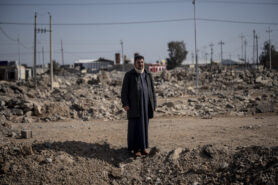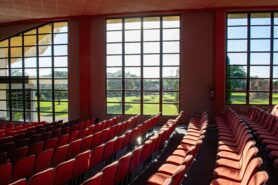In a recent article by De Kanttekening, RAW’s Dr. Lauren Gould and Associate Professor of Law and Humanities at Tilburg University Michiel Bot, share their thoughts on the growing influence of the military-industrial complex on universities, particularly in the Netherlands.
In December 2024, scientists from Tilburg University raised concerns about the lack of awareness among colleagues and students of the “gradual militarization” taking place within their institution. Historically, collaborations between universities and defense focused on technological development. Today, this influence extends to fields such as law, philosophy, and theology, prompting questions about the implications of the Ministry of Defense’s involvement in denouncing issues like morality, transparency, and civilian suffering.
The article highlights the government’s growing investments in the defense sector. Bot, one of the critics at Tilburg University, argues that financial pressures from recent budget cuts on education and increased defense funding are compelling universities to see defense as a potential funding source for research. He states that this shift threatens academic independence and narrows the space for critical inquiry.
Gould shares these concerns and stresses that academic research should be carried out independently. She explains how the Ministry of Defense has a specific objective: to improve its ability to conduct war. However, as a scientist, she emphasizes the importance of critically examining whether war and the methods used to wage it are the appropriate solutions for addressing complex political problems. Gould argues that research should be conducted independently, while the broader societal debate about these issues should be held collectively.
In the concluding part of the article, both Gould and Bot emphasize that universities must resist becoming extensions of the defense sector. They underscore the value of preserving academic independence and fostering ethical, reflective, and critical research.
Read the full article in Dutch here.
Image by RDNE Stock project.



